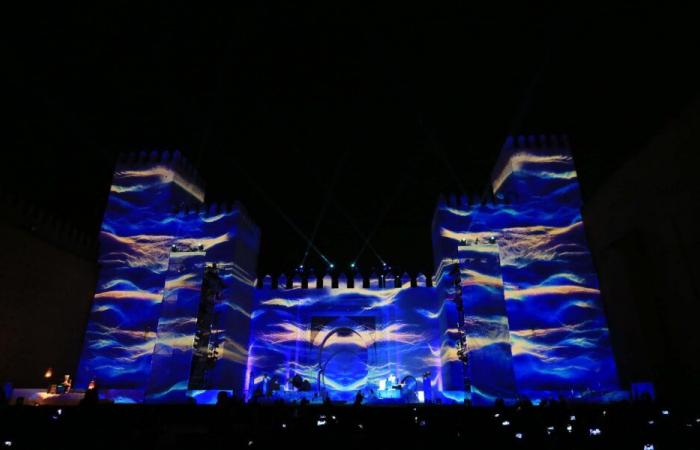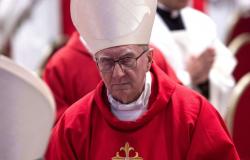Created in 1994, this festival, considered the most important in the world in its field, will coincide this year with the 44th anniversary of the registration of the Fès medina as a UNESCO World Heritage. In a world crossed by crises and conflicts, the city of Idriss I “is more than ever a head of hope that reinvents his eternal Andalusia», He reads in the press release.
After having paid tribute in 2024 to “the quest for the spirit of Al-Andalus”, the festival continues its universalist vocation by choosing to celebrate, in 2025, the “rebirths”. A theme which, according to Abderrafia Zouitene, president of the Foundation Spirit de Fez, “is in perfect harmony with the spirit of our country, which has always positioned itself as a land of cultural, spiritual and artistic renewal, carried by the will of His Majesty the king». And to add that this ambition is materialized each year “In close collaboration with the international partners of the Kingdom, in particular within the framework of South-South cooperation in accordance with the royal vision».
In this logic of opening, Italy was designated country in the spotlight of this edition. Cradle of the European Renaissance, Florence, a city twinned for the occasion with Fez, symbolizes this transition from the medieval world to modernity. The festival also intends to pay tribute to Africa, “continent anchored in its millennial cultures but turned towards youth and the future“, Whose artists are, specifies the press release,”the vectors of an immense inheritance and the actors of a creative renewal».
Between sacred and rebirth
The opening evening, scheduled for May 16 in Bab Makina, will set the tone with a great original creation entitled “Renaissions, from nature to the sacred”. This spectacle of sounds, lights, dances and projections in mapping will offer a spiritual journey ranging from the Sufi rituals of Africa, Arabia and the Indian Ocean, to the influence of Qaraouiyine, until Renaissance Italian. An evocation of the rebirths of humanity in all their diversity.
The programming of the two weekends will illustrate the triptych dear at the festival: mood in the gardens of Jnan Jbil, a big concert at Bab Makina in the evening, then return to Jnan Jbil for festive and spiritual evenings.
Thus, on Saturday May 17, the gardens will host the “Sufi rituals of the Indian Ocean”, the Deba de Mayotte And the Soufi allari ensemble of Oman’s sultanate, followed by the masters of Burundi. In Bab Makina, music lovers will witness a creation around the Vespers of the Blessed Virgin de Monteverdi, orchestrated by Antonio Greco de Florence and Mohammed Briouel de Fès, with the support of the Italian Embassy and the Italian Cultural Institute of Rabat.
On Sunday May 18, the dervishes of all the Sufi ceremonies of Istanbul will enchant Bab Makina, while in Jnan Jbil will succeed Adama Sidibé and Clément Janinet with their Concerto pour Sokouthen the famous Master Musicians of Jajouka.
-Meditations and Transals
Throughout the week, three daily meetings are scheduled for Jnan Jbil. The Bab Makina scene will reopen on Thursday, May 22 with an Andalusian creation bringing together 44 musicians, celebrating the 44th anniversary of the inscription of Fez to the intangible heritage of humanity. Placed under the direction of Mohammed Briouel and Cheikh Ali Rebbahi, this evening will be preceded by a concert of Harpe Sebawa and followed by a Night Sufi dedicated to Malhoun.
Friday, May 23, Bab Makina will welcome the Cante Jondo Poem from Miguel Poveda. The next day, the public will be able to discover the “big night of the griots of the ancient Ashanti kingdom at the Mandingo Empire”, while in Jnan Jbil will perform the Hagash ensemble of Armenia and the musicians of Persia.
Free entertainment will also be offered in Bab Boujloud, notably by the Africa Spirit troop with the Savior salt (Ivory Coast) and a street show with waders.
Thinking about “rebirths”
Like every year, the festival also offers a reflection forum, initiated in 2001. For this edition, it will address themes related to contemporary changes: “Cultures and heritage, what expressions of rebirths?”, “Collective intelligence, artificial intelligences, what promises, what risks?”, Or “Strategic questions, announced renaissance expressions?”.
The city of Fez thus confirms its status as a crossroads of cultures and religions, and a link between past, present and future. A city where “The spirit of Renaissance is a way of being, reviving each year in May“Concludes the press release.







